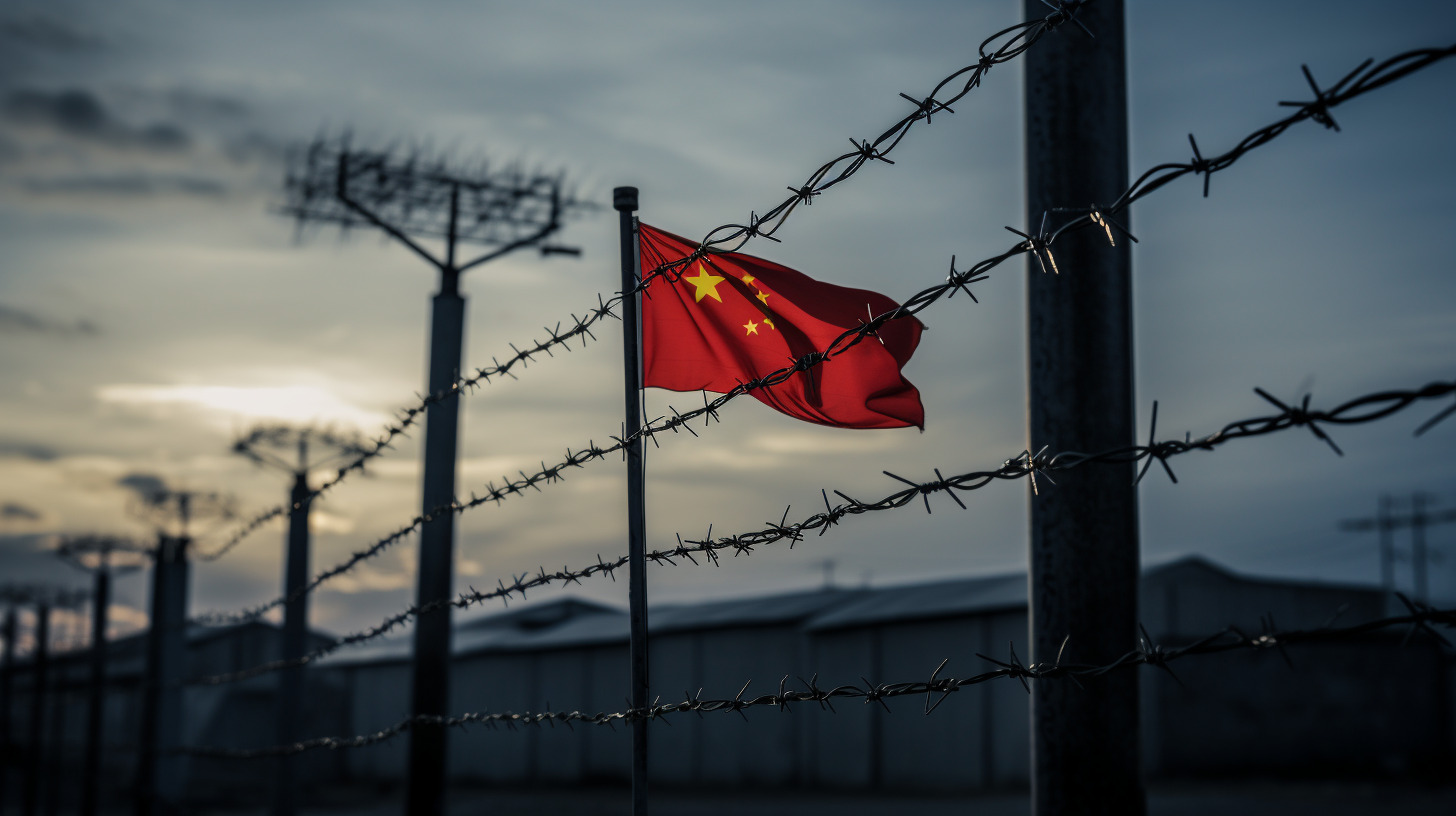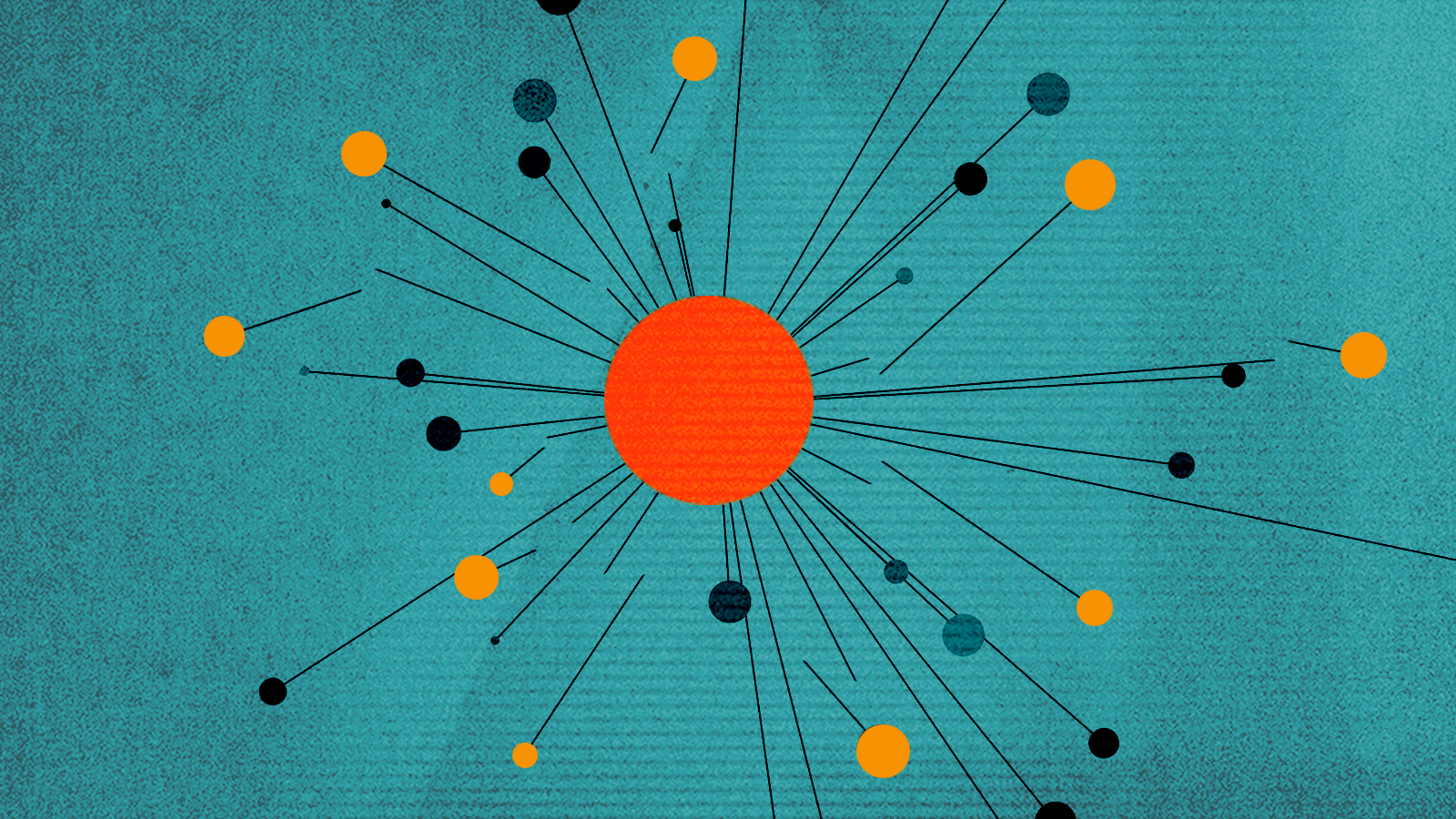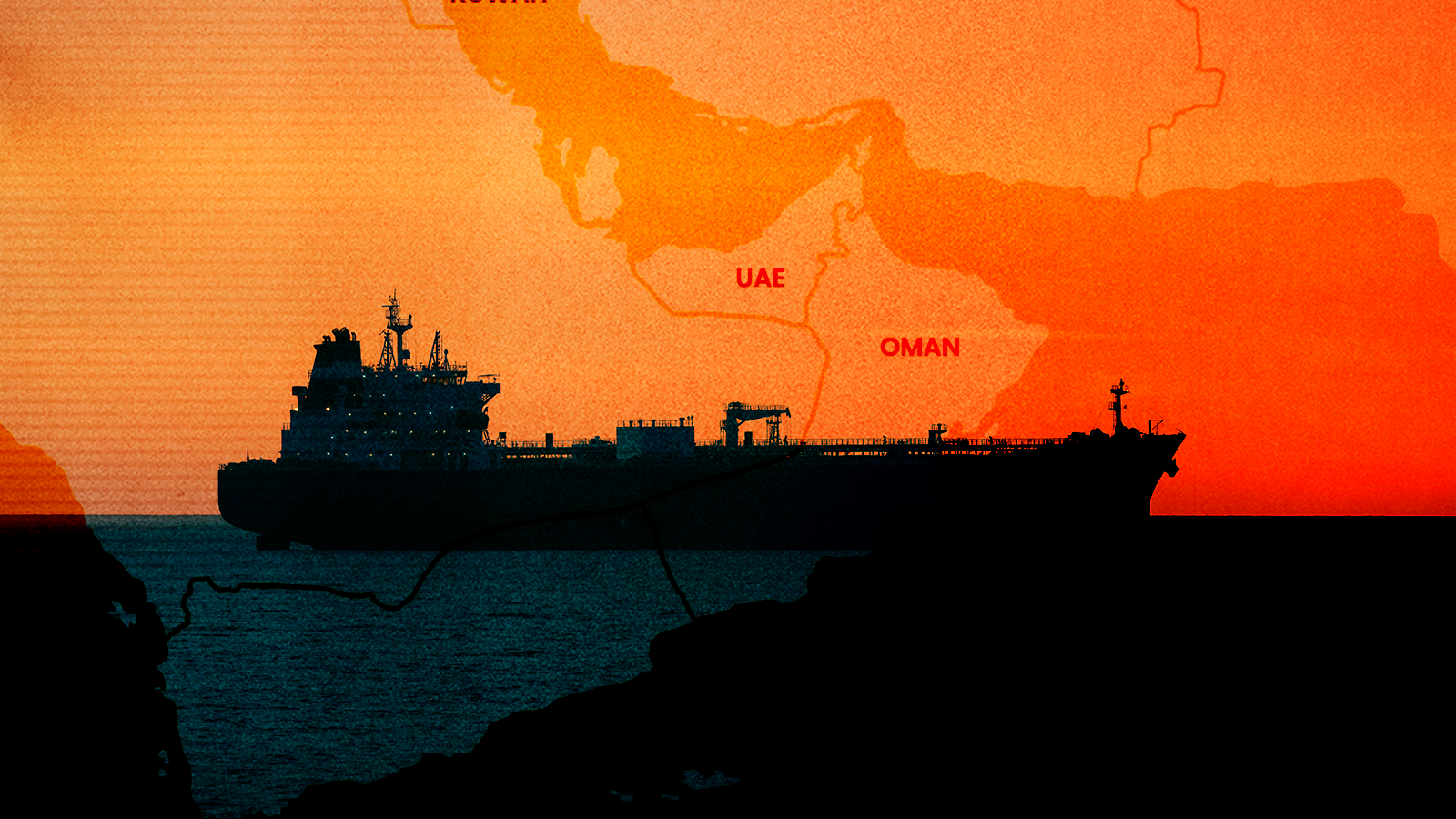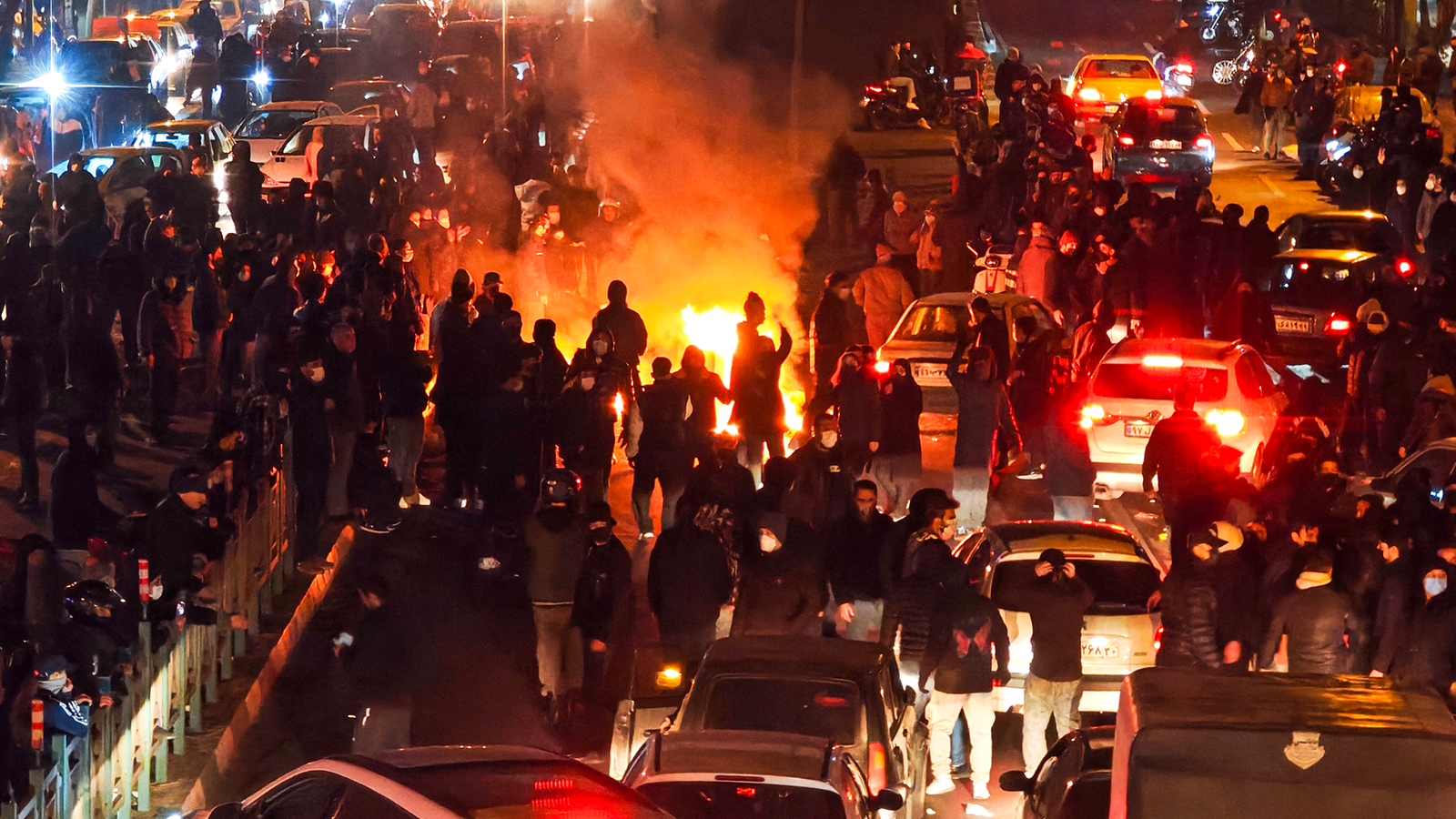Chinese sportswear manufacturing companies that have signed lucrative endorsement deals with NBA players have supply chain relationships for cotton and other textiles that tie back to Xinjiang.
Companies like Anta and Li-Ning, which were mentioned in a recent Congressional inquiry sent to the NBA, may be at risk of exposure to forced labor through their suppliers that produce or trade Xinjiang-origin goods or have benefited from Chinese government-sponsored Uyghur labor programs.
Anta and Li-Ning were described as “major end buyers” of Fountain Set (Holdings) Limited, according to a 2022 investor presentation. A publicly traded company listed on the Hong Kong Stock Exchange, Fountain Set is one of the world's largest knitted fabric manufacturers and a supplier to a number of global retailers and brands.
Fountain Set has a long-term cotton supply contract with Huafu Holdings, a Chinese company in the textile industry, according to a company disclosure. The contract, last renewed in December 2022, runs through December 2025 and calls for Huafu and its subsidiaries to supply Fountain Set with up to HKD 40 million ($5.1 million) worth of cotton and melange yarn annually.
A Huafu subsidiary, Aksu Huafu Textiles, was added to the U.S. Bureau of Industry and Security’s and the Uyghur Forced Labor Prevention Act (UFLPA) Entity Lists for “working with the government of Xinjiang to recruit, transport, transfer, harbor or receive forced labor.”
Other Huafu subsidiaries in the cotton and textile industry, including Xinjiang Huafu Cotton Industry Group Co., Ltd., have benefited from Xinjiang state-run aid and recruitment programs that constitute red flags for the presence of forced labor.
In 2017, a local state-owned news outlet also reported that Huafu received over 100 workers that were transferred from Pishan, a county located in Xinjiang, after receiving Chinese government training.
While there is no evidence that Huafu's products end up in Anta or Li-Ning shoes worn by NBA players, recent guidance by the U.S. Customs and Border Protection (CBP) notes that businesses and industry must conduct due diligence measures to ensure compliance with U.S. laws and trace their supply chains for potential exposure to Xinjiang-origin goods or listed entities.
In late September, the chairs of the U.S. Congressional-Executive Commission on China sent a letter to NBA Commissioner Adam Silver requesting that the league “prohibit the use or sale of NBA-branded gear and garments, or NBA game-day shoes made with forced labor or made by sportswear companies that endorse the use of materials [like cotton and rayon] from the Xinjiang Uyghur Autonomous Region (XUAR).”
The lawmakers expressed concern that Chinese sportswear companies, including Anta and Li-Ning, which have lucrative endorsement and shoe deals with several NBA players, have “publicly embraced the use of supply chains linked to forced labor.”
The NBA responded to the Congressional letter in late November explaining that it does not allow the use of forced labor when making its licensed apparel, and noted that the league has no control over players’ deals with shoe companies, ESPN reported.
In the letter sent on November 28, the NBA said it “condemns human rights violations anywhere.”
Companies like Anta and Li-Ning, which were mentioned in a recent Congressional inquiry sent to the NBA, may be at risk of exposure to forced labor through their suppliers that produce or trade Xinjiang-origin goods or have benefited from Chinese government-sponsored Uyghur labor programs.
Anta and Li-Ning were described as “major end buyers” of Fountain Set (Holdings) Limited, according to a 2022 investor presentation. A publicly traded company listed on the Hong Kong Stock Exchange, Fountain Set is one of the world's largest knitted fabric manufacturers and a supplier to a number of global retailers and brands.
Fountain Set has a long-term cotton supply contract with Huafu Holdings, a Chinese company in the textile industry, according to a company disclosure. The contract, last renewed in December 2022, runs through December 2025 and calls for Huafu and its subsidiaries to supply Fountain Set with up to HKD 40 million ($5.1 million) worth of cotton and melange yarn annually.
A Huafu subsidiary, Aksu Huafu Textiles, was added to the U.S. Bureau of Industry and Security’s and the Uyghur Forced Labor Prevention Act (UFLPA) Entity Lists for “working with the government of Xinjiang to recruit, transport, transfer, harbor or receive forced labor.”
Other Huafu subsidiaries in the cotton and textile industry, including Xinjiang Huafu Cotton Industry Group Co., Ltd., have benefited from Xinjiang state-run aid and recruitment programs that constitute red flags for the presence of forced labor.
In 2017, a local state-owned news outlet also reported that Huafu received over 100 workers that were transferred from Pishan, a county located in Xinjiang, after receiving Chinese government training.
While there is no evidence that Huafu's products end up in Anta or Li-Ning shoes worn by NBA players, recent guidance by the U.S. Customs and Border Protection (CBP) notes that businesses and industry must conduct due diligence measures to ensure compliance with U.S. laws and trace their supply chains for potential exposure to Xinjiang-origin goods or listed entities.
In late September, the chairs of the U.S. Congressional-Executive Commission on China sent a letter to NBA Commissioner Adam Silver requesting that the league “prohibit the use or sale of NBA-branded gear and garments, or NBA game-day shoes made with forced labor or made by sportswear companies that endorse the use of materials [like cotton and rayon] from the Xinjiang Uyghur Autonomous Region (XUAR).”
The lawmakers expressed concern that Chinese sportswear companies, including Anta and Li-Ning, which have lucrative endorsement and shoe deals with several NBA players, have “publicly embraced the use of supply chains linked to forced labor.”
The NBA responded to the Congressional letter in late November explaining that it does not allow the use of forced labor when making its licensed apparel, and noted that the league has no control over players’ deals with shoe companies, ESPN reported.
In the letter sent on November 28, the NBA said it “condemns human rights violations anywhere.”
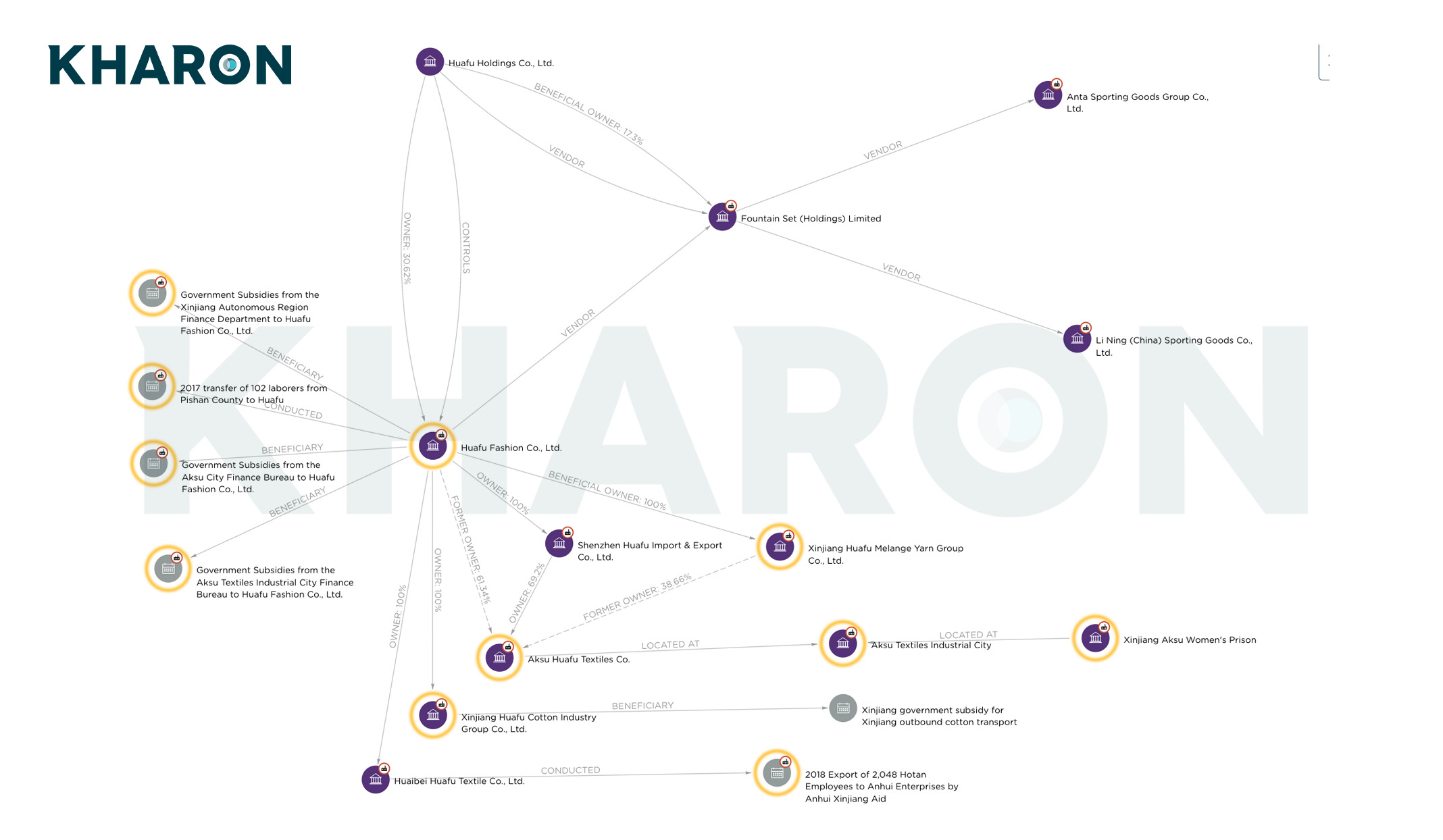
Kharon users can explore this Insight directly in the ClearView portal.



